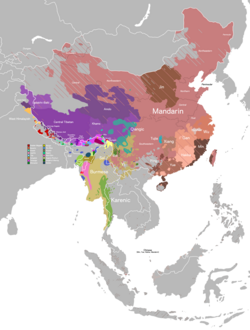References
- 1 2 3 Regmi, Dan Raj; Prasain, Balaram. 2017. A sociolinguistic survey of Dhuleli . Linguistic Survey of Nepal (LinSuN), Tribhuvan University, Kathmandu, Nepal.
Sino-Tibetan branches | |||||
|---|---|---|---|---|---|
| Western Himalayas (Himachal, Uttarakhand, Nepal, Sikkim) |
| ||||
| Eastern Himalayas (Tibet, Bhutan, Arunachal) | |||||
| Myanmar and Indo- Burmese border |
| ||||
| East and Southeast Asia |
| ||||
| Dubious (possible isolates, Arunachal) |
| ||||
| Proposed groupings | |||||
| Proto-languages | |||||
Italics indicates single languages that are also considered to be separate branches. | |||||
| West Himalayish (Kanauric) |
| ||||||||||||||||||||||||||||
|---|---|---|---|---|---|---|---|---|---|---|---|---|---|---|---|---|---|---|---|---|---|---|---|---|---|---|---|---|---|
| Bodish |
| ||||||||||||||||||||||||||||
| Tamangic |
| ||||||||||||||||||||||||||||
| | This Sino-Tibetan languages-related article is a stub. You can help Wikipedia by expanding it. |
